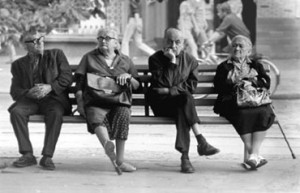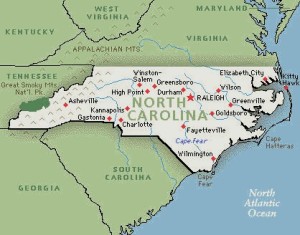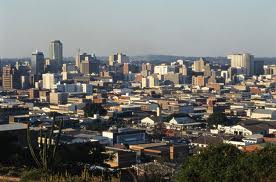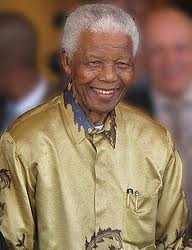Riding The Transitional Rollercoaster ~ The Shifting Relationship Between Civil Society And The Constitution In Post-Apartheid South Africa
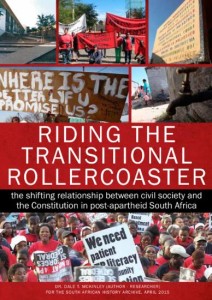 South Africa is fast approaching the 20th anniversary of the formal adoption of its Constitution. Not only does this provide an opportune moment to critically reflect on how this widely celebrated Constitution has shaped South Africa’s overall political, economic and social journey, but also on the path that the consequent relationship between the Constitution and civil society has travelled.
South Africa is fast approaching the 20th anniversary of the formal adoption of its Constitution. Not only does this provide an opportune moment to critically reflect on how this widely celebrated Constitution has shaped South Africa’s overall political, economic and social journey, but also on the path that the consequent relationship between the Constitution and civil society has travelled.
Casting our minds back to a time before the 1994 democratic breakthrough reminds us that the central political, social, economic and cultural edifice of the apartheid system in South Africa was built on the racialised foundation of a legally-framed, institutionalised violation of basic human rights. Indeed, the struggle against apartheid was, at its core, a struggle for the democratic reclamation of those human rights, whether civil-political or socio-economic. It was the popular strength and depth of this struggle that was primarily responsible for bringing an end to the apartheid system and ushering in a new democratic dispensation.
Within this historical setting then, it makes sense that one of the key requirements of a postapartheid South Africa would be to lay down a new foundation; a deracialised, legally-framed and institutionalised affirmation of basic human rights. The adoption in 1996 of South Africa’s new Constitution, containing a specific ‘Bill of Rights’ as well as the institutional architecture of a democratic system, represented the foundational layer of such an affirmation. The underlying rationale being that all the rights contained therein are, in and of themselves, basic human rights that are inherent, universal, inalienable and indivisible to every human being (in this case, as applied specifically to those living in South Africa).
Regardless of the historic and ongoing debates (some of which will be touched on later in this report) around whether South Africa’s Constitution and constitutional framework represent a legalinstitutional affirmation of basic human rights or alternatively, a well- constructed ‘mask’ that affirms and entrenches the social and economic status quo, the fact is that 20 years on the Constitution remains essential to any serious analysis and understanding of South Africa’s developmental journey. Central to that journey is the relationship between the Constitution and civil society.
It is within such a contextual frame that this report is located. Conceived as one component of a multi-faceted research and archival project through the South African History Archive (SAHA), the primary aim is to explore the changing relationship between civil society and the South African Constitution. The core material used derives from thirty-three interviews conducted with leaders of a range of civil society organisations (CSOs) as well as individual activists, academics and lawyers [see list of interviewees at end of document]. Taken together, the interviews cover the three main ‘sectors’ of civil society which this research targets – namely:
– legal / litigation;
– NGO / academic;
– community / union / activist.
The interviews have been complemented by desktop research on crucial constitutional rights cases that have come before the Constitutional Court as well as relevant academic, legal and activist materials written over the past two decades on civil society’s commentary on, outreach / advocacy about and interactions with, the Constitution.
Key issues informing this research are:
– The impact of the Constitution on the work of civil society;
– The changing attitudes of civil society towards, and levels of trust in, the Constitution;
– The extent to which the Constitution is accessible to civil society as a tool for transformation.
Download from: http://www.saha.org.za/transitional_rollercoaster.htm
The report is now available as a free download from the SAHA website, as are the transcripts of the interviews (now archived in SAHA Collection AL3287: The Constitution and Civil Society Project Collection.) You do have to be registered with the SAHA site to download publications and archival materials – one of the slight annoyances with being an organisation that has liberation struggle materials with complex copyright considerations as part of our archives (but it is quick and easy to register here, if you haven’t before – http://www.saha.org.za/users/register.php )
Nu de wipkip en de hangplek voor de jeugd er verlaten bijliggen ~ De buurt als vitale omgeving voor ouderen
De vragen en dilemma’s die de vergrijzing oproept, reiken verder dan alleen betaalbare zorg. Zelfredzaam zijn is essentieel voor ouderen. Ondanks noodzakelijke zorg willen ze zo lang mogelijk zelfstandig thuis wonen. Wat daaraan bijdraagt zijn plekken om andere mensen te ontmoeten, een omgeving waar wat te beleven valt en voorzieningen binnen handbereik. Want ouderen die vaker de deur uit gaan, zijn zelfredzamer en blijven langer thuis wonen. De buurt doet er weer toe.
Nederland vergrijst in rap tempo. De komende 25 jaar nemen zeventig plussers het grootste deel van de bevolkingsgroei voor hun rekening. In percentages stijgt hun aantal van 17 % dit jaar naar 25 % in 2040. Over 15 jaar is één op de vier Nederlanders ouder dan 70 jaar. Vooruitlopend op een alsmaar uitdijende vraag naar zorg, sleutelt de overheid alvast stevig aan ons zorgstelsel. Verzorgingshuizen gaan dicht en er vindt een verschuiving plaats naar ambulante zorg aan huis. Daarmee wordt ingehaakt op de wens van het gros van de ouderen. Die stellen de pijnlijke beslissing om op hun oude dag te verkassen naar een zorgvoorziening het liefst zo lang mogelijk voor zich uit. Er is inmiddels een waaier aan mogelijkheden voorhanden om zelfstandig thuis te blijven wonen: hulp aan huis, aanpassingen aan de woning, domotica voor zorg op afstand en het inschakelen van familie en vrienden. Maar ondanks de beschikbaarheid van al deze mogelijkheden, zal de zorg de komende decennia onder druk blijven staan. Financieel, omdat de leeftijdsgroep in omvang zo sterk aan het toenemen is. Een andere reden is dat wij de komende decennia rekening moeten houden met een generatie ouderen die uit ander hout gesneden is. De impact daarvan zou wel eens groter kunnen zijn dan nu is te voorzien.
Ander slag ouderen
De nieuwe lichtingen zeventig plussers zijn babyboomers die dank zij gestegen welvaart gemiddeld genomen vitaler zijn, sportiever en langer gezond. Kritischer ook dan vorige generaties, opgegroeid in de zestiger jaren. Vrouwen hebben de emancipatie en een eigen carrière achter de rug, konden zich losmaken uit knellende tradities. Terwijl de groeiende groep migranten op oudere leeftijd hun traditionele wortels juist meer zijn gaan koesteren. Komende generaties ouderen zullen meer divers zijn met een steeds grotere variatie aan levensstijlen. En de hang naar autonomie en zelfredzaamheid zal een veel belangrijker rol spelen dan tot nu toe het geval was. Ook als zich ouderdomskwalen aandienen. Ze zijn over het algemeen koopkrachtiger en daardoor beter is staat om hun eigen oplossingen te regelen en daar soms ook zelf voor te betalen. Maar dat geldt zeker niet voor iedereen. Door de veranderingen in de zorg staan de zorgvoorzieningen en de professionele hulp sterk in de belangstelling. Dat heeft alles te maken met de stijgende zorgkosten die op ons afkomen. Want de komende generaties staan op het punt om heel oud te worden. Met als belangrijkste verschil dat ze op een andere manier oud willen worden. De clichés van volle zalen met bejaarden aan de bingo en grijze mannen in rokerige biljartzalen, is achterhaald. De zeventigplusser van nu en straks is kieskeuriger, stelt andere eisen en is ook individueler ingesteld. De vraag is of daar wel voldoende rekening mee gehouden wordt?
Paradigmawisseling
De discussie over de veranderingen in de zorg gaat met name over de financiële houdbaarheid en de ingrepen in het zorgstelsel. Voorzieningen in de zorg zijn gestoeld op de lichamelijke en fysieke beperkingen die mensen op leeftijd ondervinden en bieden ter ondersteuning een passend zorgaanbod. In dit artikel benaderen we de gevolgen van vergrijzing vanuit een breder kader dan alleen de zorg. In plaats van een toenemende behoefte aan zorg, nemen we de wensen en de capaciteiten van ouderen als uitgangspunt. Met als doel op langere termijn om ouderen zo lang mogelijk vitaal en zo zelfredzaam als maar kan, deel te laten nemen aan het dagelijks leven. Want daar is het de nieuwe generatie ouderen om te doen, die wil ook in hun derde levensfase de regie niet zo maar uit handen geven. De komende generatie ouderen zal, ook wanneer zich lichamelijke en geestelijke beperkingen aandienen, veel langer de behoefte hebben om maatschappelijk actief te blijven en aan het openbare leven deel te nemen. Dit brengt met zich mee dat we met een andere blik naar de gevolgen van vergrijzing moeten kijken. En voorwaarden moeten creëren die dit mogelijk maken. In het Engels wordt deze aandacht voor een actieve en gezonde oude dag aangeduid als healthy aging. Read more
Decolonizing Knowledge And The Question Of The Archive & Podcast ~ Decolonizing The University
This document was deliberately written as a spoken text. It forms the basis of a series of public lectures given at the Wits Institute for Social and Economic Research (WISER), University of the Witwatersrand (Johannesburg), at conversations with the Rhodes Must Fall Movement at the University of Cape Town and the Indexing the Human Project, Department of Sociology and Anthropology at the University of Stellenbosch. The nature of the events unfolding in South Africa, the type of audience that attended the lectures, the nature of the political and intellectual questions at stake required an entirely different mode of address – one that could speak both to reason and to affect.
Twenty one years after freedom, we have now fully entered what looks like a negative moment. This is a moment most African postcolonial societies have experienced. Like theirs in the late 1970s, 1980s and 1990s, ours is gray and almost murky. It lacks clarity.
Today many want to finally bring white supremacy to its knees. But the same seem to go missing when it comes to publically condemning the extra-judicial executions of fellow Africans on the streets of our cities and in our townships. As Fanon intimated, they see no contradiction between wanting to topple white supremacy and being anti-racist while succumbing to the sirens of isolationism and national-chauvinism. Many still consider whites as “settlers” who, once in a while, will attempt to masquerade as “natives”. And yet, with the advent of democracy and the new constitutional State, there are no longer settlers or natives. There are only citizens. If we repudiate democracy, what will we replace it with?
Our white compatriots might be fencing off their privileges. They might be “enclaving” them and “off-shoring” them but they are certainly going nowhere. And yet they cannot keep living in our midst with whiteness’ old clothes. Fencing off one’s privileges, off-shoring them, living in enclaves does not in itself secure full recognition and survival. Meanwhile, “blackness” is fracturing. “Black consciousness” today is more and more thought of in fractions. A negative moment is a moment when new antagonisms emerge while old ones remain unresolved.
It is a moment when contradictory forces – inchoate, fractured, fragmented – are at work but what might come out of their interaction is anything but certain.
It is also a moment when multiple old and recent unresolved crises seem to be on the path towards a collision.
Such a collision might happen – or maybe not. It might take the form of outbursts that end up petering out. Whether the collision actually happens or not, the age of innocence and complacency is over. When it comes to questions concerning the decolonization of the university – and of knowledge – in South Africa now, there are a number of clear-cut political and moral issues – which are also issues of fairness and decency – many of us can easily agree upon.
Demythologizing whiteness
One such issue has just been dealt with – and successfully – at the University of Cape Town. To those who are still in denial, it might be worth reiterating that Cecil Rhodes belonged to the race of men who were convinced that to be black is a liability.
During his time and life in Southern Africa, he used his considerable power – political and financial – to make black people all over Southern Africa pay a bloody price for his beliefs. His statue – and those of countless others who shared the same conviction – has nothing to do on a public university campus 20 years after freedom.
The debate therefore should have never been about whether or not it should be brought down. All along, the debate should have been about why did it take so long to do so.
To bring Rhodes’ statue down is far from erasing history, and nobody should be asking us to be eternally indebted to Rhodes for having “donated” his money and for having bequeathed “his” land to the University. If anything, we should be asking how did he acquire the land in the first instance.
Arguably other options were available and could have been considered, including that which was put forward late in the process by retired Judge Albie Sachs whose contribution to the symbolic remaking of what is today Constitution Hill is well recognized.
But bringing Rhodes’ statue down is one of the many legitimate ways in which we can, today in South Africa, demythologize that history and put it to rest – which is precisely the work memory properly understood is supposed to accomplish.
For memory to fulfill this function long after the Truth and Reconciliation paradigm has run out of steam, the demythologizing of certain versions of history must go hand in hand with the demythologizing of whiteness. This is not because whiteness is the same as history. Human history, by definition, is history beyond whiteness.
Human history is about the future. Whiteness is about entrapment. Whiteness is at its best when it turns into a myth. It is the most corrosive and the most lethal when it makes us believe that it is everywhere; that everything originates from it and it has no outside. We are therefore calling for the demythologization of whiteness because democracy in South Africa will either be built on the ruins of those versions of whiteness that produced Rhodes or it will fail.
Read more (PDF-file): http://wiser.wits.ac.za/AchilleMbembe
Podcast: https://archive.org/details/AchilleMbembeDecolonizingTheUniversity
How Can Gov. McCrory’s Proposal Work? Preliminary Thoughts And Policy Considerations
On Monday, March 30, the Winston-Salem Journal published a piece titled “Economic development bill stalls in Senate” starting with Gov. McCrory’s proposal to “recruit an automobile manufacturer and create thousands of jobs and scores of companies”. This is really an interesting development proposal that can boost production growth in North Carolina. The article [i] seeks to discuss the developmental and industrial dimensions of this proposal and to offer policy considerations deemed absolutely necessary for the successful implementation of such an ambitious plan.
The Present Context
There has been much talk and debate on the recent economic downfall of the United States. Causes for concern include persistent fluctuations in output, job creation and productivity; massive federal budget and trade account deficits; and issues associated with “capital flight” and industrial decline (U.S. National Economic Accounts, various years). These fluctuations are closely linked to unutilized labor force, lost output, and social problems. Furthermore, the economic effects of the recent financial crisis are complicated and far-reaching because of simultaneous shocks in the housing, stock, and labor markets. Actual spending, unemployment, home equity, well-being, emotional and physical health, and expectations about the future have all been affected by a significant slowdown in endogenous productive activity and various problems associated with financial markets. Hence, it is argued here that three important themes need to come to the center stage:
1. A discourse on the “appropriate” policy interventions,
2. The importance of adopting a long-term perspective, and
3. Emphasis on strengthening local production lines.
An Alternative Development Paradigm
The US model of a pluralist market economy is strongly consumer and short-term oriented. Its strength is dynamism and flexibility; its dominant philosophy is private sector competition and minimal government. As a result, industrial policy has not been developed in a systematic or coherent fashion as an important piece of policy making, and the country has not generally seen itself as being involved in the promotion of specific sectors. Read more
Civil Domains and Arenas in Zimbabwean Settings. Democracy and Responsiveness Revisited – DPRN Five
Introduction (written 2008 – first published 2010)
A popular remedy for Africa’s predicament is the promotion of ‘civil society’. It is conventionally seen as a collection of various kinds of non-profit bodies separate from the state and business sector. It is framed within a consensual model of politics, and thus capable of working in ‘partnership’ with both state and business sectors in pursuit of common interests, particularly ‘development’ and ‘democracy’ [i]. Since the late 1970s donors sought substitutes for the state in the private sector. In the 1980s they discovered the virtues of the non-profit branch of this sector. They tasked older entities such as mission hospitals and newly-arrived non-governmental organisations (NGOs) with providing a range of services, from schooling and healthcare to small enterprise promotion, that were once considered responsibilities of the public sector.
Under their neoliberal paradigm, donors have tried to raise the nonprofit sector’s political status. Beyond service provision, its main task is to counter government power. Here civil society is cast as a hero, who routinely calls a villainous state to account. Yet this model of ‘civil society’ has evoked controversy. Questions have arisen about the effects of NGOs not only as substitute providers of basic services, but also as vehicles of public politics, effectively substituting for opposition political parties [ii]. A number of writers have called attention to ‘the obvious: that civil society is [largely] made up of international organisations’. Some argue that the whole concept of ‘civil society’ as promoted by outsiders does not match African sociological or political realities, and can ultimately weaken, rather than strengthen the power of common citizens. There are calls, in short, for a re-think. Read more
Post-Apartheid South Africa And The Crisis Of Expectation – DPRN Four
The collapse of the apartheid state and the ushering in of democratic rule in 1994 represented a new beginning for the new South Africa and the Southern African region. There were widespread expectations and hopes that the elaboration of democratic institutions would also inaugurate policies that would progressively alleviate poverty and inequality.
Fourteen years into the momentous events that saw Nelson Mandela become the president of South Africa, critical questions are being asked about the country’s transition, especially about its performance in meeting the targets laid down in its own macro-economic programmes in terms of poverty and inequality, and the consequences of the fact that the expectations of South Africans have not been met.
At a general level the euphoria of 1994 has come up against deepening inequality, rising unemployment, the HIV pandemic and bourgeoning violent crime. The latter has led one writer to conclude that South Africa is ‘a country at war with itself’ (Altbeker 2007).
South Africans have trusted democracy with the hard task to deliver jobs, wealth, healthcare, better housing and services to the people. But now that all of this is slow in arriving, there is growing disquiet and increased community protests that have sought to challenge the government on the pace of service delivery.
It is the level of what we have labelled a crisis of expectation that this paper speaks to. It looks at what under lies this crisis of expectation and what are the potential consequences. Read more


